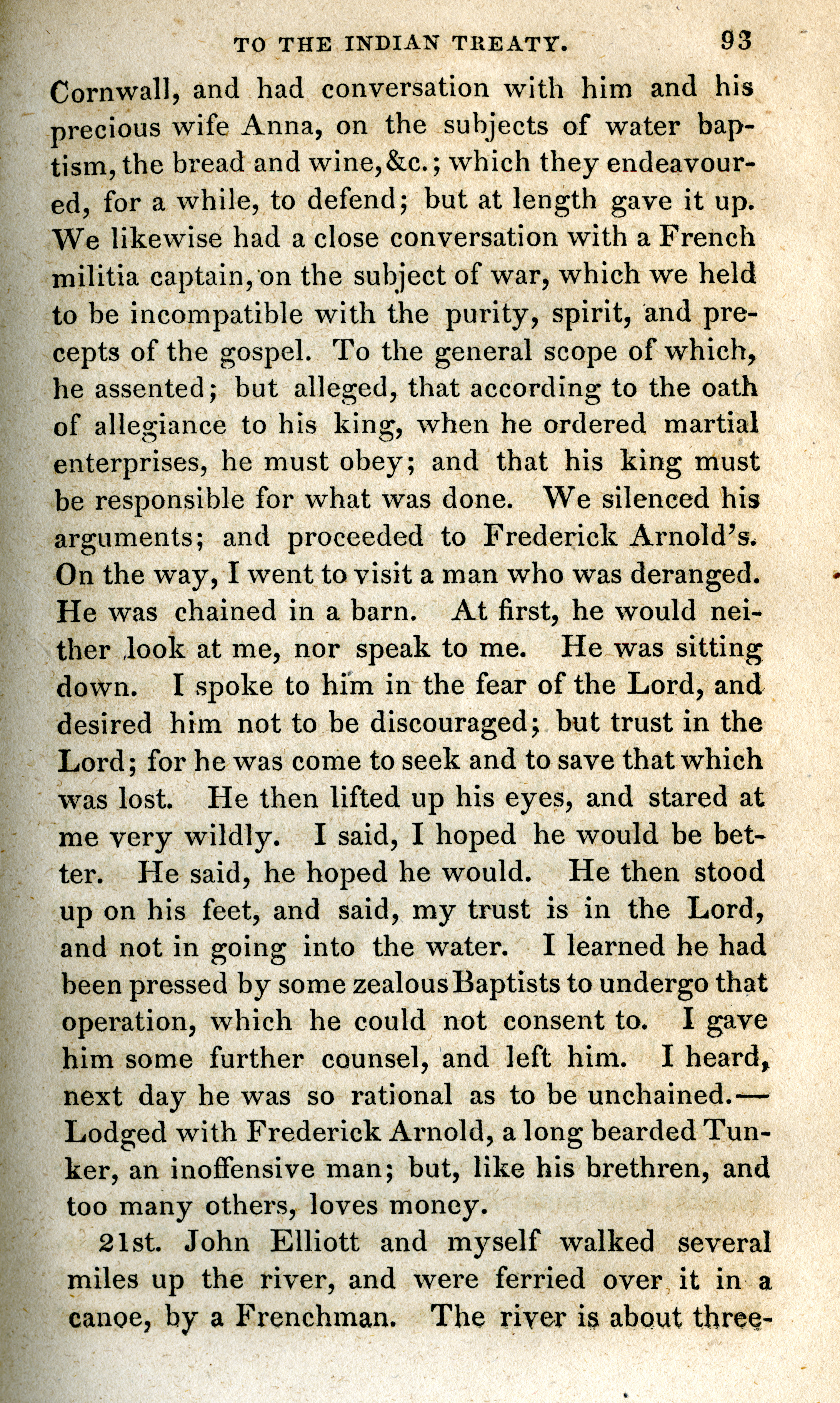Cornwall, and had
conversation with him and his
precious wife Anna, on the subjects of water
bap-
tism, the bread and wine, &c.; which they endeavour-
ed, for a
while, to defend; but at length gave it up.
We likewise had a close
conversation with a French
militia captain, on the subject of war, which we
held
to be incompatible with the purity, spirit, and pre-
cepts of the
gospel. To the general scope of which,
he assented; but alleged, that
according to the oath
of allegiance to his king, when he ordered
martial
enterprises, he must obey; and that his king must
be
responsible for what was done. We silenced his
arguments; and proceeded to
Frederick Arnold's.
On the way, I went
to visit a man who was deranged.
He was chained in a barn. At first, he
would nei-
ther look at me, nor speak to me. He was sitting
down. I
spoke to him in the fear of the Lord, and
desired him not to be
discouraged; but trust in the
Lord; for he was come to seek and to save
that which
was lost. He then lifted up his eyes, and stared at
me very
wildly. I said, I hoped he would be bet-
ter. He said, he hoped he would. He
then stood
up on his feet, and said, my trust is in the Lord,
and not
in going into the water. I learned he had
been pressed by some zealous
Baptists to undergo that
operation, which he could not consent to. I
gave
him some further counsel, and left him. I heard,
next day he was
so rational as to be unchained.—
Lodged with Frederick Arnold, a long bearded Tun-
ker, an inoffensive
man; but, like his brethren, and
too many others, loves money.
John
Elliott and myself walked several
miles up the river, and
were ferried over it in a
canoe, by a Frenchman. The river is about three-

